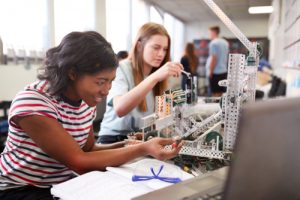
U.S. Rep. Frank Lucas (R-OK) praised passage this week by the U.S. House of Representatives of five bipartisan science-related pieces of legislation.
Under suspension of the rules, the House on Monday approved all five bills put forth in the U.S. House Science, Space, and Technology Committee, on which Rep. Lucas serves as ranking member.
“The bills passed by the House today are a tremendous example of the bipartisan work being done by the House Science Committee on issues like STEM education, deepfake technology, biotechnology, and sustainable chemistry,” Rep. Lucas said on Dec. 9 following the House approvals. “I’m proud to support these bills.”
The House-approved bills include the Identifying Outputs of Generative Adversarial Networks Act, H.R. 4355. The bill would task the National Science Foundation (NSF) and the National Institute of Standards and Technology with supporting research and development of tools to detect and counter the spread of deepfakes, which use artificial neural networks in media to replace a person in an existing image or video with someone else’s likeness.
“Research into deep fake technology will help us better identify and combat manipulated media content. Improved biotechnology research will drive innovations in agriculture, medicine, energy, and manufacturing,” said Rep. Lucas.
The Sustainable Chemistry Research and Development Act of 2019, HR. 2051, would create an interagency working group to coordinate federal programs and activities that support sustainable chemistry. “Standards, training, and research into sustainable chemistry will help support safe and effective chemical products that are critical to our way of life,” the congressman said.
The Building Blocks of STEM Act, S. 737, would direct NSF to support and expand early childhood STEM education, with a focus on computer science education.
The Minority Serving Institutions (MSIs) STEM Achievement Act, H.R. 4372, would direct federal science agencies and the Office of Science and Technology Policy to build STEM education and research capacity at American MSIs. Both S. 737 and H.R. 4372, Lucas said, “will improve STEM education in America and help us develop a diverse and talented workforce.”
The Engineering Biology Research and Development Act of 2019, H.R. 4373, would establish a federal engineering biology research initiative to bolster U.S. leadership in engineering biology, among other provisions.



